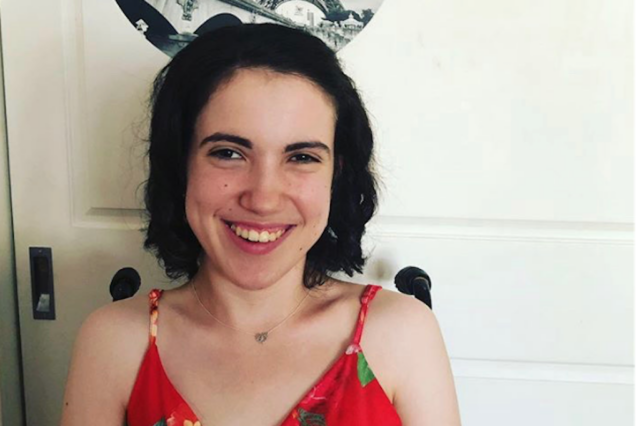By Hannah Diviney
I eventually won the fight to get the provisions I needed, but the road was convoluted and demeaning, writes Hannah Diviney.

Here in NSW, Year 12 and the HSC is one of the most stressful times in a young person’s life. Society tells us that the mark we get at the end of those exams will define our future, deciding the paths we take as adults and which doors will be open to us in the mystical world of careers and money.
So, imagine my horror when I was told “We don’t care what mark she gets, only that she completes the exams,” by the people in charge.
Three years ago, when it was my turn to sit those hallowed exams, the pressure nearly crushed me, made heavier by the weight of the wheelchair I sit in.
When you are disabled (or study is made harder by circumstances beyond your control), you can apply for Special Provisions for HSC exams to even the playing field and close the gap of disadvantage and difference between you and your classmates. For me, with spastic diplegic Cerebral Palsy (which affects the gross and fine motor skills of all my limbs), that meant the gap between their ability to write and mine.
The fine print is that you need to fight to close that gap by jumping a million hurdles to prove the legitimacy of your disability.
In order for me to complete the exams to the best of my academic ability, I needed the use of a laptop to type my responses, which is an equal opportunity alternative to handwriting (which gets messier, harder to read, and more painful the longer I do it), or having a scribe.
A scribe, which is someone who writes for you as you tell them out loud what to put down on the page is what they usually recommend, and it sounds simple enough, but there’s a catch. According to Department of Education rules, a scribe is only allowed to put punctuation in a sentence if you explicitly tell them to, but that’s not the way we speak. I had well-documented lower marks as a result of using scribes, and I didn’t want that for my HSC. I didn’t want the possibility of forgetting to say ‘full stop’ or ‘comma’ out loud, when they’re subconscious actions, to be the reason I didn’t get the future I wanted.
You’ll be pleased to know, I eventually won the fight to get the provisions I needed. The road was convoluted and demeaning.
I had to provide; letters from specialists to prove my disability (a permanent condition without a cure that I’ve had since birth); psychological assessments to show my anxiety and depression wouldn’t cope if I couldn’t do the exams the way I needed; handwriting tests, to prove that my handwriting actually does get messier and harder to read; typing tests, again and again, to make sure I didn’t type faster than my peers could write; and tests with a scribe (despite being the recommended method of sitting exams, using a scribe was still painted as a possible advantage by those in charge).
Every statement I made about the impact of my CP on those exams had to be backed by irrefutable evidence.
Yet, even with all that evidence, there was no guarantee they’d accept it. Even my own school, loyal to the Education Department, wasn’t fully on board with my plan to not use a scribe, until my mum threatened to take legal action against the Department.
In the end, I got my laptop, but then there was the technical difficulties that then plagued my exams when I actually got there (my password not working after I’d practiced, everyone in the state being locked out of an exam for 40 minutes, my school’s internet going down…)
I feel lucky that my family, and the team of medical professionals around me, were fierce and unrelenting advocates for my needs and rights. Not everyone has that. Throughout the process, I was made to feel like a box to be checked.
Not a person, not somebody with a valuable future. I was made to feel that I didn’t matter.
Yet, I do matter, and so does every student with a disability, no matter their needs or educational goals. By putting up barriers to education, the government deprives our communities of potential leaders and change-makers.
They’re denying us a basic human right, and that will never be okay.
Hannah Diviney is a Sydney-based writer and passionate disability advocate. She is in her third year of an Arts/International Studies degree, majoring in Creative Writing & International Relations at the University of Wollongong. You can find her online @hannah_diviney on Twitter or @hannahthewildflower on Instagram.
